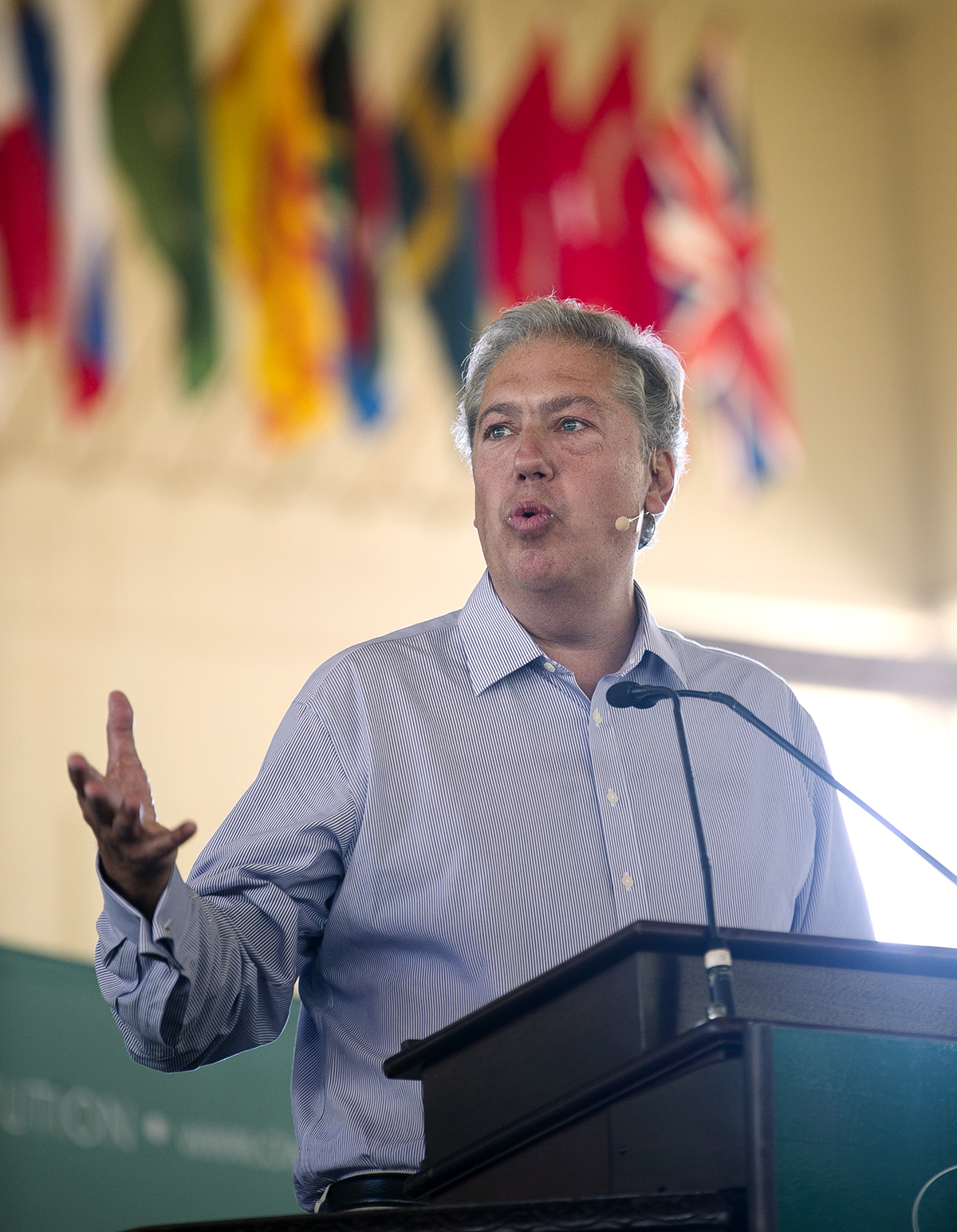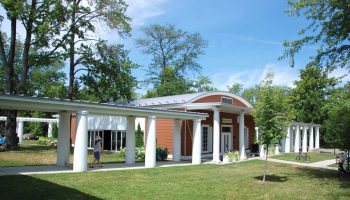In 1971, when he was 13 years old, Christopher H. Gibbs appeared on the stage of the Amphitheater in a production of The King and I, choreographed by Statia Sublette and featuring another boy in a small part, Roger Goodell.
Goodell, of course, went on to become the commissioner of the National Football League. And Gibbs did not do too badly himself: He is the James H. Ottaway Jr. Professor of Music at Bard College, the co-artistic director of the Bard Music Festival, and the executive editor of The Musical Quarterly. He also has edited The Cambridge Companion to Schubert, co-edited Franz Liszt and His World and Franz Schubert and His World, and is the author of The Life of Schubert.
It is an illustrious career in music that he traces back to that first performance.
At 1:45 p.m. Friday in the Athenaeum Hotel Parlor, Gibbs will talk about “Chautauqua and Opera,” part of the Oliver Archives Heritage Lecture Series, which will be followed by “An Afternoon of Song” presented by the Studio Artists.

The Chautauqua Opera Company, founded in 1929, is North America’s oldest continually operating summer opera company and the fourth-oldest opera company in the United States. It offers more than 40 operatic events each season, including productions in the Amp and in Norton Hall, featuring internationally known guest artists and promising singers from its Young Artist Program.
This season, it will stage the American premiere of Monteverdi’s L’Orfeo, reorchestrated by Ottorino Respighi, on Saturday; Don Pasquale on July 28 and 31; and the Philip Glass-and-Allen Ginsberg chamber opera Hydrogen Jukebox on July 27 and Aug. 1.
Gibbs will speak generally about opera as a genre, about the history of opera at Chautauqua and about the tradition of performing operas in English, which was pioneered at the Institution.
“Opera was a natural fit for Chautauqua,” Gibbs said. “The music, the dance, the singing; it is all part of what Wagner calls ‘the total work of art.’ ”
“For the first 15 seasons, the Chautauqua Opera was incredibly prominent among summer festivals,” Gibbs said, but was later eclipsed by other festivals like the Santa Fe and Saint Louis operas, which focus solely on the genre. “But it more than holds its own today.”
A native of New York, Gibbs spent summers on the grounds of the Institution and appeared here in the operas Carmen and La Traviata as a teenager.
“It was a terrific thing that Chautauqua kids were given the opportunity to appear on stage with such talented professionals,” he said. “At that time, I wasn’t all that enamored of classical music, but by 15 or 16, I began to love it, and it became all consuming. In high school, I was going to the Met practically every night.”
Chautauqua, Gibbs said, has long had a tradition of performing operas in English, making the work more accessible to a wider audience. And one of the changes in the genre that fascinates him is the use of “supertitles” — translated subtitles scrolled across the backs of seats in some opera houses and projected from the stage at others — which have increased opera’s popularity internationally.
Gibbs’ lecture and the Studio Artists’ performance Friday should provide Chautauquans with a perfect introduction to what promises to be a memorable season.




